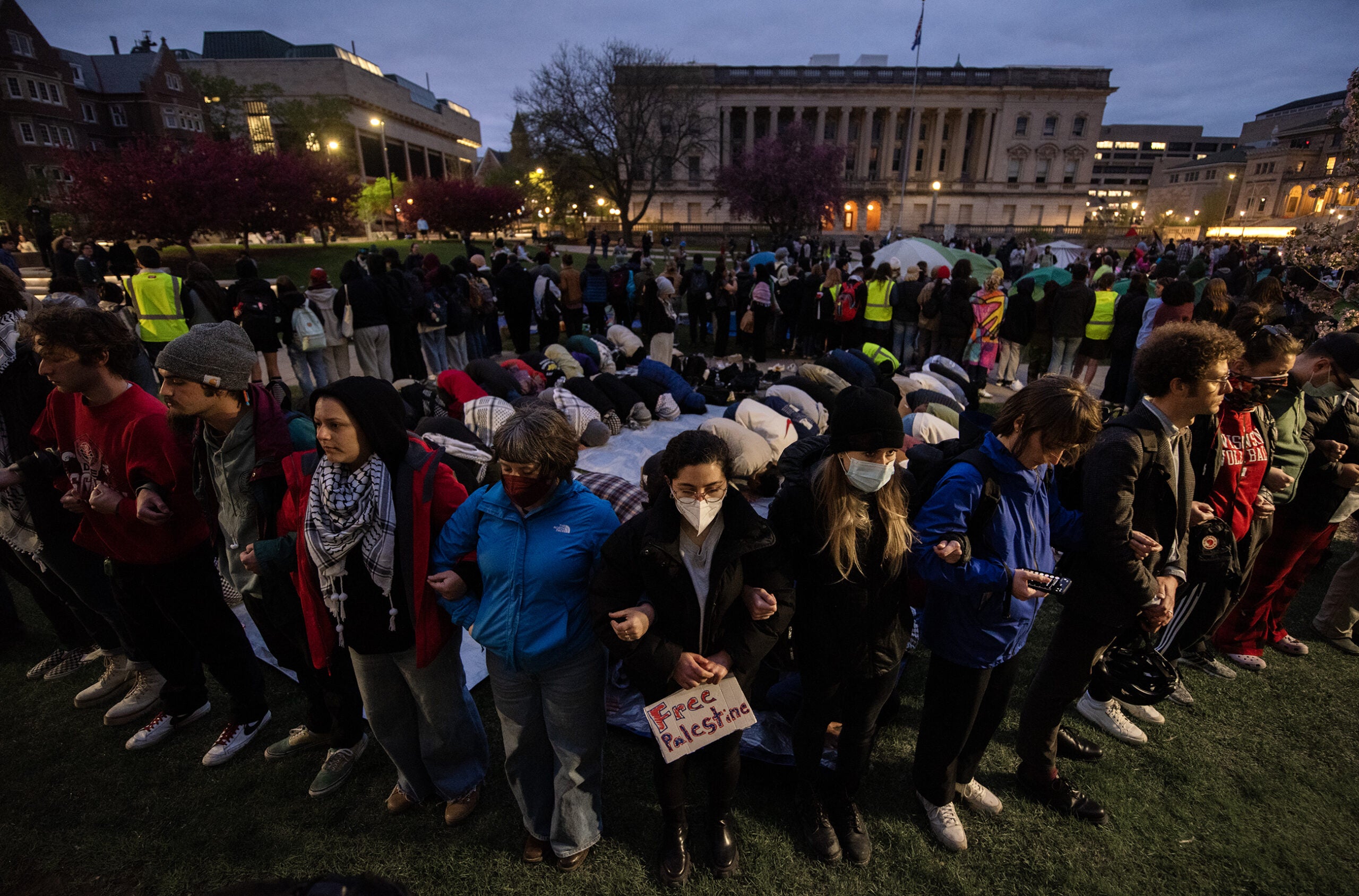The Milwaukee Repertory Theater is getting set to host a short play festival for the sixth year running. Our guest explains how the REP makes the festival happen, and tells us what we can expect from this year’s shows. We also get the latest on how the Airbnb app is affecting rent prices in major cities, and we look at the recent spate of police killings through a public health lens.
Featured in this Show
-
Treating Police Shootings As A Public Health Concern
A team of Harvard researchers is calling for shooting deaths by law enforcement to be treated as a public health issue, which would include systematic counting of those deaths. We find out what would need to happen to put a system in place, and what the result may be.
-
REP Lab's Sixth Season at Milwaukee Rep
The Milwaukee REP is preparing for their upcoming Sixth Season of REP Lab, a one-of-a-kind short play festival featuring several individual plays acted and directed by The Rep’s Emerging Professional Residents. The coordinator of the program joins us for a preview.
-
Airbnb Debate Comes To Wisconsin
It’s the week between Christmas and New Years and millions of Americans are traveling around the country and beyond. Some of those people are using the short-term rental site Airbnb.
Airbnb allows people to rent out rooms in their houses or entire secondary properties to strangers over the Internet for anywhere from one day to weeks. It already has over 1 million rooms available globally, more than many major hotel chains.
This past year the company engaged in heated debates with cities like New York and San Francisco over how these short-term rentals should be regulated. Proponents of the company say Airbnb provides additional income to help residents pay their rent or mortgages. Opponents say it takes properties off the local rental market in many already stretched housing markets.
The debate has recently arrived in Wisconsin, with the Senate and Assembly considering a bill that would block local municipalities from regulating some short-term rentals.
-
Harvard Researchers: Police-Related Deaths Are A Public Health Issue
A team of Harvard researchers is calling for police-related shooting deaths to be treated as a public health issue and for the fatalities to be added to an official database to help track the incidents.
While police officer deaths are well documented, there’s not reliable data on the number of people killed by law enforcement officials in the United States, according to Nancy Krieger, professor of social epidemiology at Harvard.
Krieger is the lead author of a new report, “Police Killings and Police Deaths Are Public Health Data and Can Be Counted,” in which she advocates making law-enforcement related deaths a “notifiable condition” that would have to be reported to government authorities — much like measles, pneumonia, Hepatitis A and other serious conditions.
In the report, the researchers point out that there are disease conditions that involve far fewer fatalities that are deemed important enough to track.
“What has happened is that until now, this has been treated as if it were a matter of criminal justice only and are police data,” she said. “But in fact, these are deaths. And in public health, we count dead bodies. It’s what we do. We monitor mortality.”
By adding police deaths to the official notifying system, Krieger said it will create transparent data accessible to the public. Moreover, she added that it will help health officials analyze the data and identify inequalities and prevention methods, as well as hold people accountable.
The report acknowledges that at least one news outlet, The Guardian, is compiling real-time data on U.S. police-related deaths. Krieger said it’s disappointing that a foreign newspaper is taking on that duty.
“And I’m not the only one expressing that disappointment,” she said. “The director of the FBI, (James) Comey, has also said that it is ridiculous, embarrassing and unacceptable that The Guardian, a British newspaper, has better data and more timely data on deaths due to police killings than the U.S. government does.”
While Krieger and other health officials want to move law enforcement-related deaths into the public health arena, she said she recognizes that it also belongs in the domain of criminal justice.
“This reporting system will say nothing about whether use of force was justifiable or not. That’s clearly a legal question that belongs in the domain of criminal justice,” she said.
The oversight shift would allow another sector of government to look at the problem and increase the monitoring. If nobody knows how big the problem is, said Krieger, it’s hard to make it smaller.
Episode Credits
- Rob Ferrett Host
- Judith Siers-Poisson Producer
- KP Whaley Producer
- Galen Druke Producer
- Nancy Krieger Guest
- J.C. Clementz Guest
- Noah Kulwin Guest
- Andra Ghent Guest
Wisconsin Public Radio, © Copyright 2025, Board of Regents of the University of Wisconsin System and Wisconsin Educational Communications Board.



